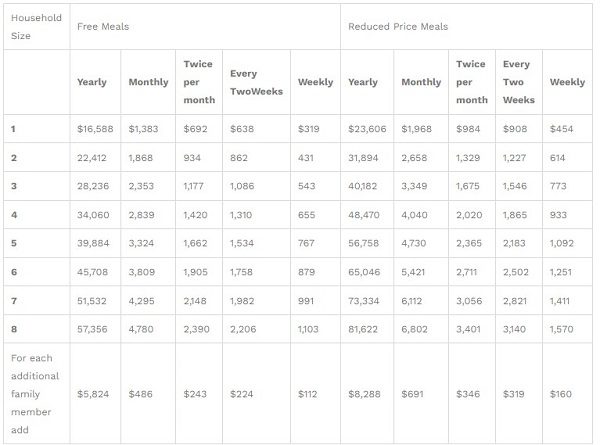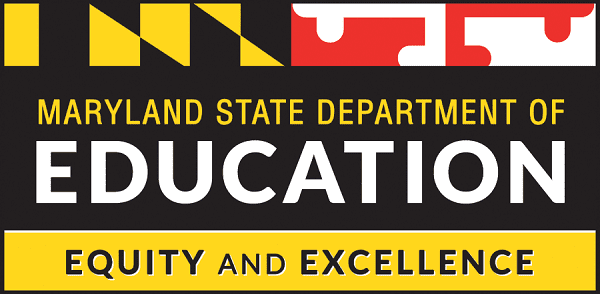BALTIMORE, MD—The Maryland State Department of Education on Friday announced revised Income Eligibility Guidelines (IEGs) for free and reduced-price school meals. The guidelines are set by the federal government and adopted by MSDE. The IEGs are used to determine eligibility for free or reduced-price meals in child nutrition programs for the period of July 1, 2020 through June 30, 2021.
The U.S. Department of Agriculture’s (USDA) annual adjustments to the IEGs are required by Section 9 of the Richard B. Russell National School Lunch Act. The guidelines are intended to directly benefit those children most in need and are revised annually to account for changes in the Consumer Price Index. The IEGs were established by multiplying the 2020 federal income poverty guidelines by 130 percent to determine the household income levels for free meal eligibility and by 185 percent for the reduced-price meal eligibility income levels. The income levels are rounded upward to the next whole dollar.
Household size and income is the most common way to determine eligibility. For example, a child from a family of four is eligible for free school meals if the household’s current annual income is below $34,060. If the family’s annual income is between $34,061 and $48,470, the child is eligible for reduced-price meals.
Meal Benefit Applications will be available at the beginning of the school year. Parents and guardians should complete applications in their entirety and submit it to the school; schools cannot approve incomplete applications. United States citizenship is not required to be eligible for free or reduced-price meals.
Schools will inform households whether children qualify for free or reduced-price meals. Parents and guardians may speak with school officials concerning disagreement with the school’s decision or appeal the decision and request a hearing with the school district’s administrators.
Children enrolled in Head Start, Even Start, certified as homeless, migrant, runaway, foster, or children living in households that receive Food Supplement Program (FSP) or Temporary Cash Assistance (TCA) benefits are eligible for free meals and do not need to fill out an application. Some FSP and TCA households will receive a letter from the school informing them that children in the household are eligible for free meals.
FSP and TCA households that do not receive a letter by the beginning of the school year should fill out an application. Other children who may be eligible for free or reduced-price meals include children in households participating in the Special Supplemental Nutrition Program for Women, Infants, and Children (WIC). Parents and guardians of these children should complete an application.
Parents and guardians may reapply at any time during the school year and are encouraged to do so if the household size increases, parents and guardians become unemployed, income decreases, or the household qualifies for FSP or TCA.
School Meals includes: School Breakfast Program, National School Lunch Program, After-School Care Snack component, and Special Milk Program. The School Meals programs are administered in Maryland by the MSDE, and must meet nutrition requirements set by the USDA. Visit www.eatsmartmaryland.org for additional information regarding the Child Nutrition Programs operating in Maryland.
Individuals who want more information concerning schools or facilities that participate in one of the Child Nutrition Programs should contact a Program Specialist at 410-767-0219.
Income Eligibility Guidelines
(Effective July 1, 2020 through June 30, 2021)

Do you value local journalism? Support NottinghamMD.com today.

